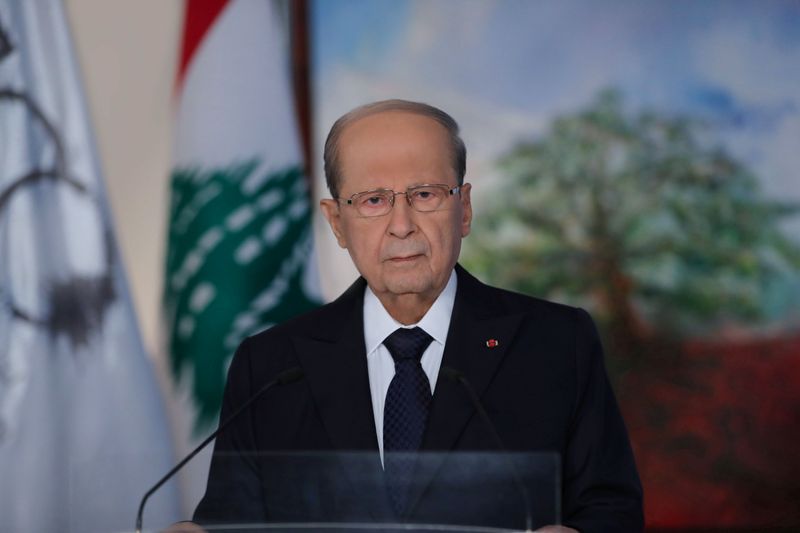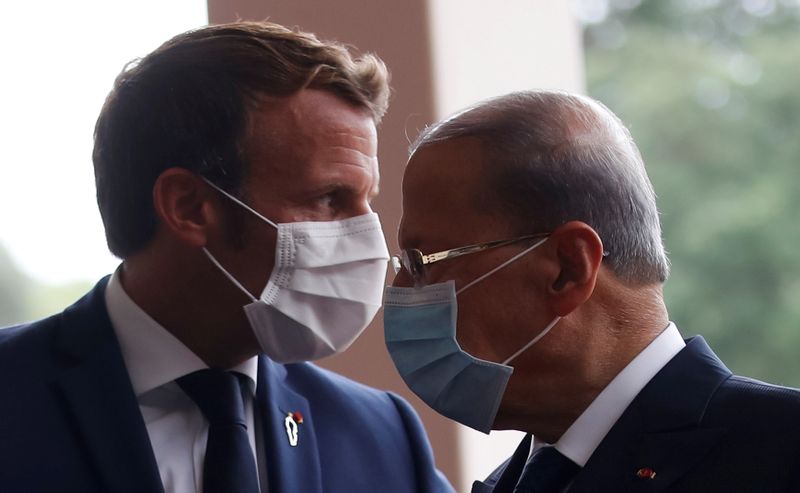BEIRUT (Reuters) – Lebanon’s President Michel Aoun said on Wednesday parliamentary consultations to choose a new prime minister will begin on Oct. 15, in an effort to push Lebanon’s fractious political class to move on forming the country’s next government.
Lebanon’s government resigned on Aug. 10 in the wake of a devastating blast that killed nearly 200 people and wrecked swathes of the capital, Beirut.
Mustapha Adib, the country’s former ambassador to Berlin, was picked on Aug. 31 to form a cabinet after French President Emmanuel Macron intervened, securing a consensus on naming him in a country where power is shared between Muslim and Christian sects.
He quit in late September, however, after trying for almost a month to line up a non-partisan cabinet. His resignation dealt a blow to a French plan aimed at rallying sectarian political leaders to tackle the worst crisis since the nation’s 1975-1990 civil war.
Under the French roadmap, the new government would take steps to tackle corruption and implement reforms needed to trigger billions of dollars of international aid to fix an economy that has been crushed by a mountain of debt.
But Adib’s efforts stumbled in a dispute over appointments, particularly the post of finance minister, who will have a key role in drawing up economic rescue plans.
Macron admonished Lebanon’s leaders following Adib’s resignation, saying the failed efforts amounted to a collective “betrayal”, but vowed to push ahead with his efforts.
The country’s leaders bristled at Macron’s accusations, but there has been little movement since.
Two political sources told Reuters that Aoun set the date to exert pressure on Lebanon’s political leaders to start talking to each other and discussing candidates for prime minister.
“No one is talking to each other, and contact with the French has been almost completely cut off,” one senior political source said, adding that no names for prime minister were being discussed yet.
France’s foreign minister repeated on Wednesday that it was urgent that Lebanon formed a government or the countrry risked disappearing.
Speaking in a parliamentary hearing, Jean-Yves Le Drian said Paris had pushed back an aid conference to November, but that key powers would meet in the coming days to reiterate the need for the Lebanese authorities to press ahead.
(Reporting by Laila Bassam, Ellen Francis and John Irish; Writing by Raya Jalabi; Editing by Dominic Evans and Bernadette Baum)
























